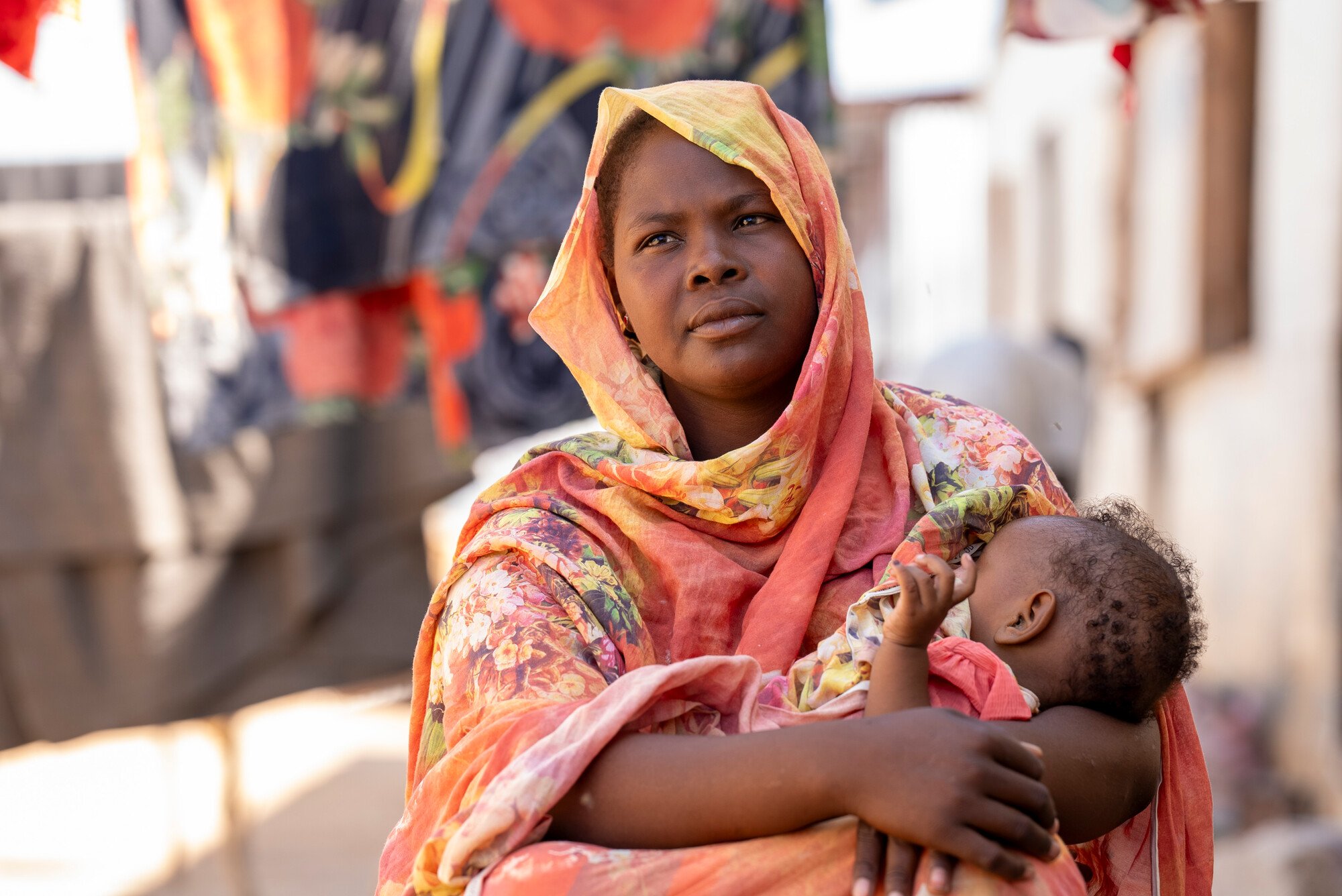A wave of violence in the Darfur region of Sudan has uprooted more than 300,000 people in recent weeks. Oxfam and partners are rushing aid to tens of thousands of people who have fled attacks.
When fighting broke out in the town of Saraf Omra, Darfur, people grabbed their children and fled a hail of bullets; behind them, their houses and everything they owned went up in smoke.
Tens of thousands of people rushed to the nearby compound of the UNAMID peacekeepers, hoping they’d be safe there. But there was no proper sanitation in the rough camp they built, and little protection from the searing heat.
Children were suffering, said Oxfam’s Salim Abdul Aziz. Some lay listlessly in makeshift shelters, weakened by diarrhea. “I remember thinking,” he said, “these children didn’t commit any crime.”
Aziz is a water engineer. He and public health officer El Nazier Mohammed arrived in Saraf Omra a few days after the attack to build on the work of our local partner organization, which had already begun supplying clean water to the camp.
The smell was terrible, they said. Goats and donkeys and cows had died in the blaze, and their fly-blown bodies still littered the streets.
But parents had something more troubling on their minds, said Mohammed. “They felt they had nothing they could provide to their children. Not even protection.”
But still, they acted. Practically from the moment they landed in the chaotic camp, members of community organizations found each other. Youth groups volunteered to dispose of the dead animals. Women’s groups asked traders and government officials to support the worst-affected families. “They collected money for food for the children on the very first day,” said Mohammed.
The Kebkabiya Smallholders Charitable Society (KSCS), Oxfam’s partner, pitched in on the clean-up effort with shovels and wheelbarrows and face masks. Later, they would distribute hygiene supplies like soap, and make sure women and girls had the basics they needed to feel comfortable: sanitary supplies, underwear, and taubs, the light strips of cloth worn here as wraparound dresses.
Meanwhile, Aziz, Mohammed, and partner staff worked on next steps, walking through the camp and town to learn what they could. What are you feeding your family now, they asked. How is your health? Did your livestock survive? Are they sick or injured or starving? What do you need to plant your crops? If the market were open, would you feel safe going there?
The answers are shaping Oxfam’s program plans, which—if we can raise the funds we need—will include providing fodder and vaccinations for livestock, seeds and tools for farmers, and the means for the most vulnerable families to buy the food they need from local vendors.
“When you see the aftermath of an event like this, you realize two things,” said El Fateh Osman, director of Oxfam in Sudan. “How vulnerable these communities are, but also how strong.”
Learn more about Oxfam's work in Sudan and help us provide emergency aid to people in need.




